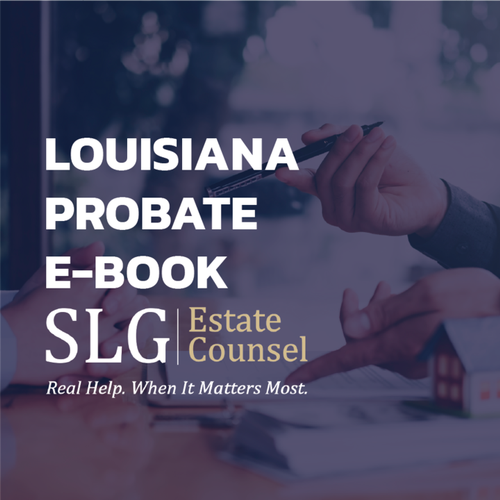Blended families often bring both blessings and potential complications. Spouses, children, and stepchildren may have questions about what happens to a person’s estate after they die in Louisiana. 
Potential Estate Conflicts for Blended Families
It’s possible that surviving spouses, children, and stepchildren may have conflicting opinions about how a loved one’s estate was meant to be distributed. Consider what could happen, if, for example:
- Your loved one left everything to a spouse in the will. Your loved one’s intention may have been that their spouse would use the property for the rest of their lifetime and then pass it to their children and stepchildren. However, unless specific estate planning tools are used, the spouse may leave property to anyone they wish. Sometimes, the children of the first spouse to die could be inadvertently left out of the will.
- Your loved one raised or cared for children and stepchildren equally but did not create a will. Stepchildren do not have the right to inherit property in a Louisiana intestate succession and will not inherit property unless they were adopted by the stepparent.
These situations can lead to hurt feelings, family strife, and legal battles.
Family Member Rights in a Louisiana Estate
As you seek to resolve estate conflicts, the first question that must be answered is whether the decedent had a valid will. Generally:
- If the decedent died with a valid will, the terms of the will decide the distribution of property. The decedent can leave property to their spouse, children, stepchildren, a combination of these family members, or other people.
- If the decedent died without a will, Louisiana law decides how to divide the property. If a married person with children dies without a will, the children become owners of the decedent’s separate property and co-owners of community property with the spouse. Unadopted stepchildren are not considered children for intestate succession purposes and will not inherit anything.
Sometimes, there may be a will, but you might question its validity. The specific terms of the will may be so different from what you expected, you may believe there’s a right to challenge the will in court.
You can’t challenge the validity of a will simply because you don’t like it. However, you can contest a will in Louisiana if:
- The will was not properly executed. Louisiana wills are only valid if they meet the requirements of a notarial or olographic will.
- Your loved one was under undue influence when creating the will. The person asserting undue influence must prove that the will had unusual provisions that don’t make sense, that the person creating the will was susceptible to extraordinary pressure because of illness, old age, or another reason, and the person exerting undue influence benefits from changes made to the will.
- Your loved one lacked testamentary capacity to create a will. If you challenge the will on this basis, you need to establish with clear and convincing evidence that your loved one did not understand the consequences of the document they were signing or the provisions included in that document.
How to Make Sure Your Rights Are Protected
Your spouse, parent, or stepparent had options when creating an estate plan. For example, your loved one could have left the property in a trust that their spouse could use over their lifetime and then pass to their children, or your loved one could have made specific bequests to their stepchildren.
However, if the estate plan does not meet the family’s expectations, they must deal with the reality of what does exist. This may leave you with many questions about your rights or the rights of other family members.
Our Louisiana estate litigation lawyers are here to answer your questions and to protect your rights. To learn more about what to do if your spouse, parent, or stepparent has died, and your family has conflicting ideas about the estate’s administration, Contact us to get started on your case today.
|
Related Links: |



